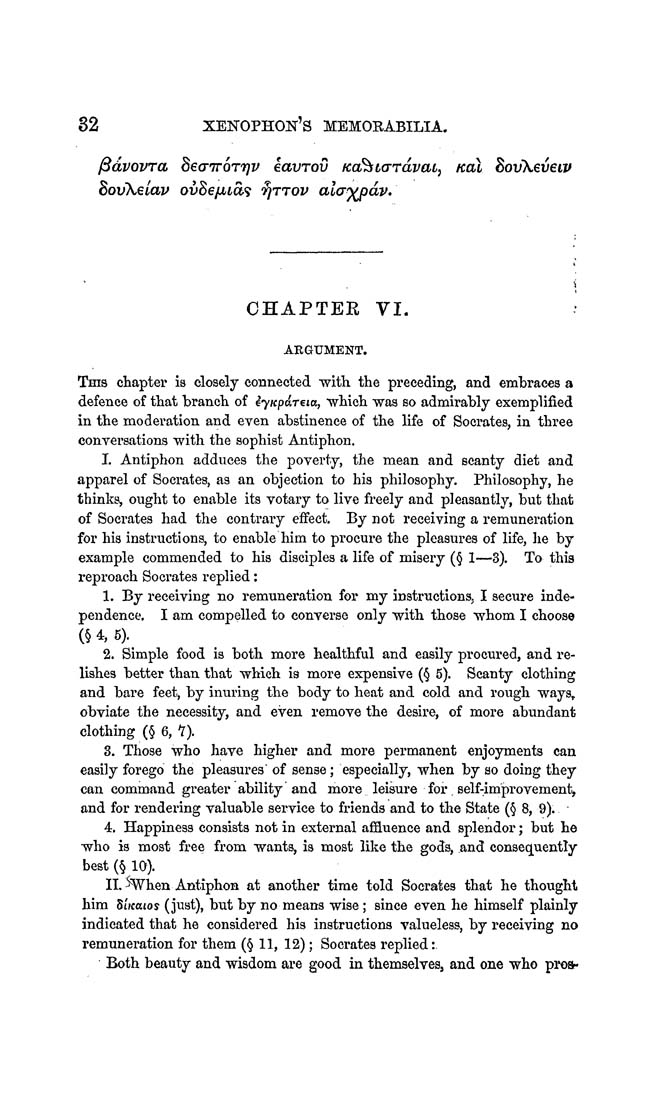32 xenophon's MEMORABILIA.
^dvovTa SeaTTOTyv eavTov Ka^taTavat, Kal SovXevetv
SovXeiav ovSepttds fJTTOv alaxpdv.
OHAPTEE VI.
ARGUMENT,
Tms chapter is closely connected with the preceding, and embraces a
defence of that branch of eyKpdreia, which was so admirably exemplified
in the moderation and even abstinence of the life of Socrates, in three
conversations with the sophist Antiphon.
I. Antiphon adduces the poverty, the mean and scanty diet and
apparel of Socrates, as an objection to his philosophy. Philosophy, he
thinks, ought to enable its votary to live freely and pleasantly, but that
of Socrates had the contrary effect. By not receiving a remuneration
for his instructions, to enable him to procure the pleasures of life, he by
example commended to his disciples a life of misery (§ 1—3). To this
reproach Socrates replied:
1. By receiving no remuneration for my instructions, I secure inde¬
pendence. I am compelled to converse only with those whom I choose
(§4,5).
2. Simple food is both more healthful and easily procured, and re¬
lishes better than that which is more expensive (§ 5). Scanty clothing
and bare feet, by inuring the body to heat and cold and rough ways,
obviate the necessity, and even remove the desire, of more abundant
clothing (§ 6, ^).
8. Those who have higher and more permanent enjoyments can
easily forego the pleasures" of sense; especially, when by so doing they
can command greater ability and more leisure for self-improvement,
and for rendering valuable service to friends and to the State (§ 8, 9). -
4. Happiness consists not in external affluence and splendor; but he
who is most free from wants, is most like the gods, and consequently
best (§ 10).
II. ^hen Antiphon at another time told Socrates that he thought
him '^LKaios (just), but by no means wise ; since even he himself plainly
indicated that he considered his instructions valueless, by receiving no
remuneration for them (§ 11, 12); Socrates replied:.
Both beauty and wisdom are good in themselves, and one who pros-
|








